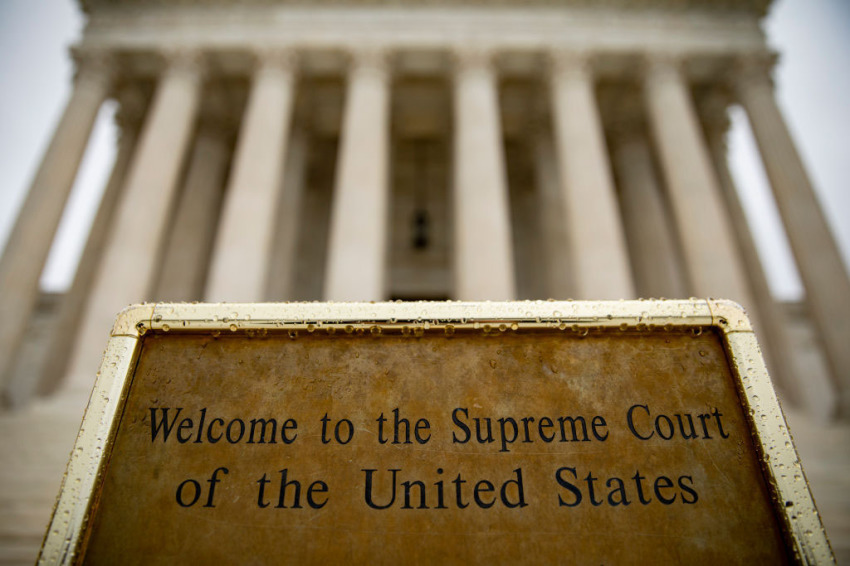Supreme Court allows high school admissions policy that reduced share of Asian students to stand

The U.S. Supreme Court declined to hear an appeal challenging an elite Virginia high school’s admissions policy that opponents believe discriminates against Asian American applicants.
In an orders list released Tuesday, the high court declined to hear arguments in the case of Coalition for TJ v. Fairfax County School Board, allowing an appeals court ruling in favor of the process to stand.
The lawsuit centers on whether Thomas Jefferson High School for Science and Technology of Fairfax County could enforce an admissions policy that had resulted in a sharp decline in the percentage of Asian students at the institution.
While no explanation was given for the decision, Supreme Court Justice Samuel Alito authored a dissent, being joined by Justice Clarence Thomas, arguing that the lower court ruling had a “patently incorrect and dangerous understanding of what a plaintiff must show to prove intentional race discrimination.”
“What the Fourth Circuit majority held, in essence, is that intentional racial discrimination is constitutional so long as it is not too severe. This reasoning is indefensible, and it cries out for correction,” wrote Alito.
Joshua Thompson of the Pacific Legal Foundation, which is helping to represent the Coalition for TJ, said in a statement Tuesday that he believes the high court “missed an important opportunity to end race-based discrimination in K-12 admissions.”
“Discrimination against students based on their race is not only ethically wrong but also a clear violation of the Constitution’s guarantee of equal protection,” stated Thompson.
“Schools should evaluate students as individuals, not as groups based on racial identity. That kind of group stereotyping is morally wrong and undermines the American promise of opportunity for all.”
In December 2020, the Fairfax County School Board created an admissions policy for Thomas Jefferson High School meant to improve racial diversity in its student body, which at the time was comprised of 71% Asian American and 19.5% white.
Among other things, the new admission policy removed a $100 fee and allowed most of the incoming freshman seats to be reserved for students from all of Fairfax’s public middle schools.
Students applying to Thomas Jefferson High School for these reserved seats were evaluated based on their grade point average, a “portrait sheet,” a problem-solving essay and “Experience Factors.”
In March 2021, the Coalition for TJ filed suit against school district officials, arguing that the revised admissions policy, while officially “race neutral,” violated the Equal Protection Clause of the U.S. Constitution.
While a district court ruled in favor of the coalition in February 2022, a three-judge panel of the 4th U.S. Circuit Court of Appeals ruled 2-1 in favor of the school district in May 2023.
Circuit Judge Robert Bruce King, a Clinton appointee, authored the panel majority opinion, arguing that “the policy visits no racially disparate impact on Asian American students.”
“Indeed, those students have had greater success in securing admission to TJ under the policy than students from any other racial or ethnic group,” wrote King.
“Moreover, the Coalition fails to identify any evidence suggesting that the Board adopted the policy ‘at least in part because of’ some calculated adverse effect on Asian American students — that is, the Coalition makes no showing of discriminatory intent by the Board.”
King contended that “it is clear that Asian American applicants to TJ suffer from no such detriment” when applying to the high school for the class of 2025 academic year.
“Asian American students accounted for 48.59% of the applications to TJ’s class of 2025, but actually secured 54.36% of the admission offers made for that class,” King continued.
“Asian American applicants were thus the only racial or ethnic group to receive offers notably in excess of its share of the applicant pool in 2021, producing the highest admissions ‘success rate’ of any such group.”
Circuit Judge Allison Jones Rushing, a Trump appointee, authored a dissenting opinion, pointing out that the admissions policy had “reduced offers of enrollment to Asian students at TJ by 26% while increasing enrollment of every other racial group.”
“This was no accident. The Board intended to alter the racial composition of the school in exactly this way — as demonstrated by a resolution it adopted saying as much, the racial data it requested and considered in the process, the means it selected, and the candor of individual Board members’ internal discussions,” Rushing added.
Earlier this month, the high court rejected a request to temporarily prevent the U.S. Military Academy in West Point, New York, from using race as a factor in its admissions policy while the lawsuit against the policy is adjudicated.
In June 2023, the Supreme Court ruled 6-3 that Harvard University and the University of North Carolina could not use race as a factor in student admissions.



























